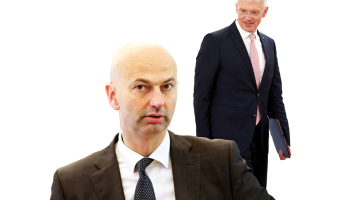
Foto: zudusilatvija.lv
More stable growth has a better long-term track record
Ten years ago Latvia joined the European Union and I think we are in for all sorts of commemoration of that event. And, mostly, rightly so. Personally, I think Latvia made the right choice in joining the EU and I also find there have been many positive developments since then. I have to struggle, however, to make economic development one of the major successes.
In normal times - of which we haven't had much for the past ten years - one would expect poorer countries to grow faster than richer and more mature ones, reflecting a catching-up process. A graph like Figure 1 below should thus be expected, roughly, to be the opposite of a graph of GDP per capita and to some extent it is: Of the ten fastest growing EU economies since 2004 we find eight eastern European (aka rather poor) countries, including all three Baltic ones.














